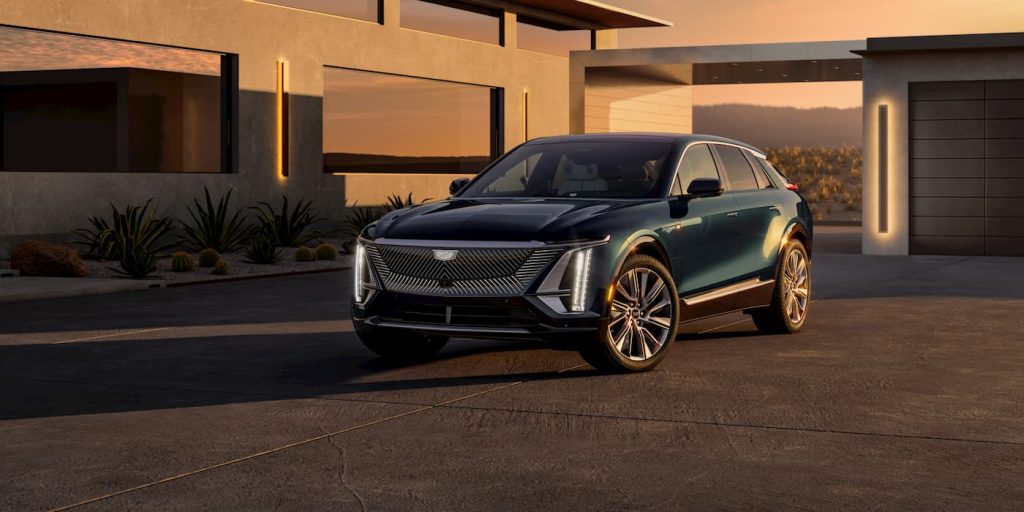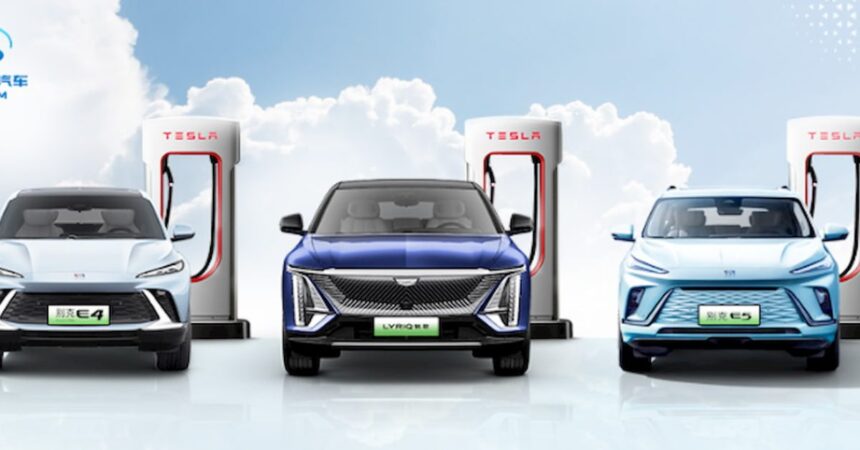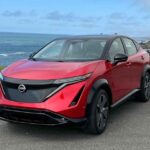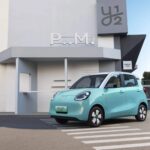General Motors’ three-way partnership in China, SAIC-GM, achieved a remarkable milestone in 2023 by delivering over 100,000 electric vehicles, more than tripling its output from the previous year.
General Motors’ China Three-Way Partnership Electric Vehicle Sales Double in 2023.
General Motors’ Chinese joint venture saw a remarkable 312 percent year-over-year surge in electric vehicle (EV) deliveries, with 18,911 units handed over to customers in December alone.
SAIC-GM, a joint venture between General Motors (GM) and SAIC Motor, offers electric vehicles (EVs) under its own brand in China, distinct from those sold by GM’s premium brands including Buick, Chevrolet, and Cadillac. The manufacturer currently produces and markets five electric models in this region.
The production-ready Buick Electra E5, an Ultium-powered electric SUV, made its debut in November 2022, followed by the unveiling of the Electra E4 just two months later. Meanwhile, the model debuted its all-new Velite 6 during the latter half of the summer season, starting at an affordable price point of just $15,500 (112,800 yuan).
Cadillac unveiled its inaugural electric vehicle, the Lyriq, in China in December 2021. By the end of 2022, SAIC-GM had already delivered more than 86,000 units of its electric vehicles, including the Buick Velite, Electra E5, and Cadillac Lyriq models.
In the past year, a total of 85,967 units were sold, with the Buick Velite accounting for 45,538, the Electra E5 having sales of 35,129, and the Lyriq delivering 5,400 vehicles to customers.
The company intends to roll out eight electric vehicles and plug-in hybrids within the next two-year period, seeking to build on its growing momentum in the sector. SAIC-GM operates two dedicated EV facilities in Shanghai and Wuhan, where it manufactures Ultium battery packs. Its third manufacturing facility, located in Yantai, is poised to resume operations by mid-2025.
Meanwhile, SAIC-Volkswagen has achieved a milestone of surpassing 10,000 unit sales of its ID electric models for six consecutive months, driven primarily by the success of the popular VW ID.3 electric hatchback. As of 2022, SAIC Motor was China’s second-largest new energy vehicle (NEV) manufacturer, trailing only BYD in terms of production volume and market share for plug-in hybrid electric vehicles (PHEVs) and battery-electric vehicles. By the end of this year, BYD surpassed Tesla as the largest electric vehicle (EV) manufacturer globally.

SAIC recently launched a three-year ‘New Vitality’ momentum-building plan last year. Three-way partnership manufacturers have focused on “pursuing new paths, driving innovation, and accelerating growth.” This year, the plan is expected to accelerate further as SAIC’s new energy vehicle (NEV) business enters a stage of rapid development.
As a pioneer in China’s automotive industry, SAIC-GM achieved a milestone by becoming the first manufacturer to gain access to Tesla’s electric vehicle (EV) charging network. Cadillac and Buick electric vehicle (EV) homeowners will have priority access to charging stations.
Electrek’s Take
Despite accelerating efforts in China, General Motors is tempering its electric vehicle (EV) ambitions at home. General Motors saw a significant surge in electric vehicle sales, with a whopping 93% year-over-year increase to 75,883 units sold within the United States during the final 12-month period. The electric delivery service, Brightdrop, showcases its fleet of purpose-built electrical supply vans.
Although the Bolt EV and EUV models drove GM’s 2023 electric vehicle sales to nearly 82%, with over 62,000 units sold, the automaker ceased production in December. The electric vehicle transfer accelerates as General Motors intensifies production of its cutting-edge Ultium-based electric powertrains.
General Motors has accelerated the production of its Equinox EV, Silverado RST EV, and GMC Sierra Denali EV, further solidifying its commitment to an electric future in the automotive industry.
As General Motors phases out the iconic Bolt, the company risks falling further behind in the rapidly evolving US market as consumers increasingly demand electric vehicles. Despite being outpaced by Ford in electric vehicle (EV) gross sales last year, both companies still lag far behind Tesla’s impressive tally of over 1.8 million EV deliveries.











